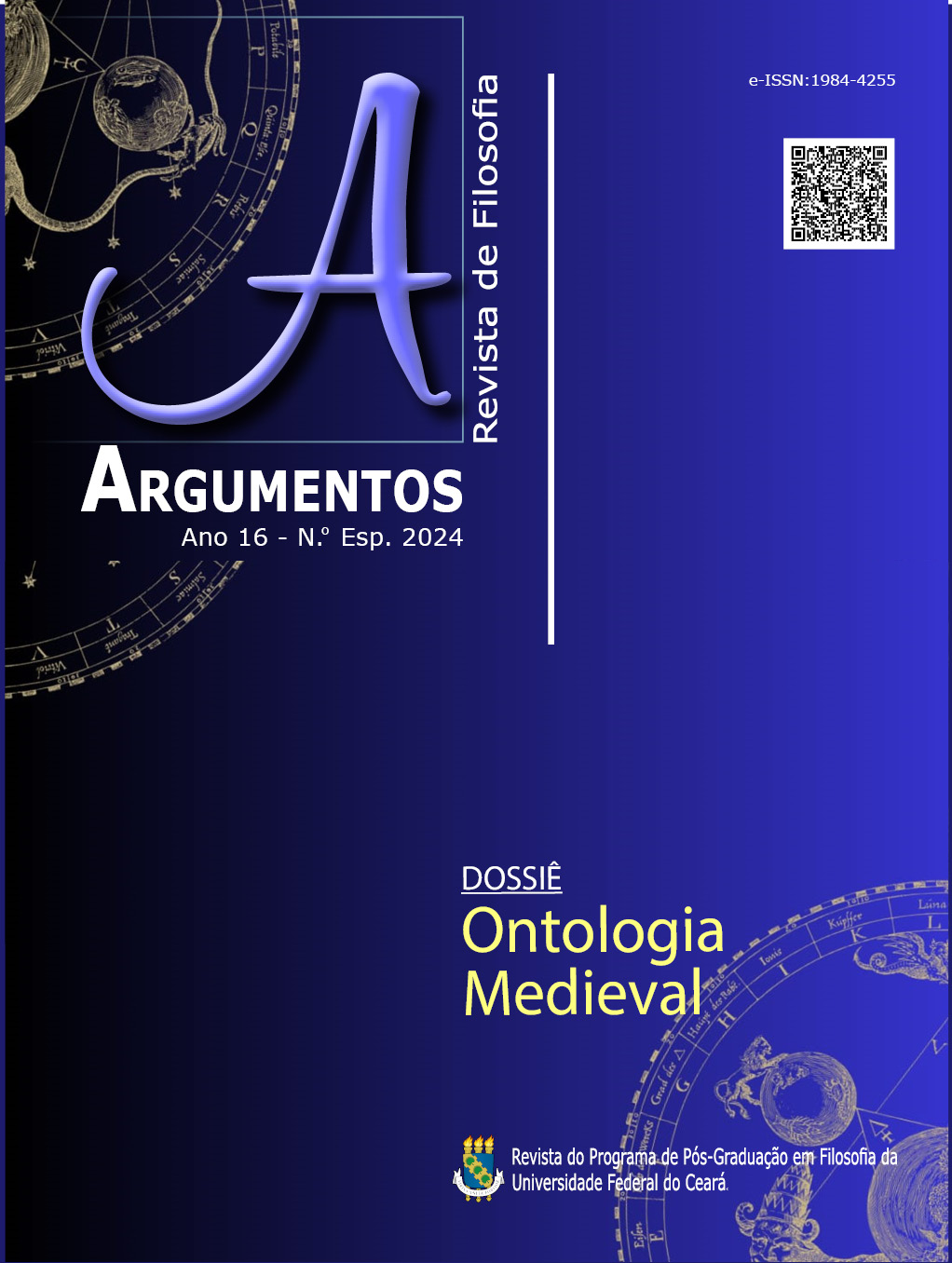Technological design as practice: a look beyond artifactual instrumentalism and merely human agency
DOI:
https://doi.org/10.36517/Argumentos.16.esp.93717Palavras-chave:
Technology. Practice. Virtues. Ethics. Moral Agency.Resumo
The paper is based on the thesis that technological creation or design should not be viewed as an activity entirely determined by internal criteria for developing artifacts, as if these could have only a single, identical form and function, depending solely on their material properties. Like any other socially established human practice, technological creation or design is a human action and, as such, is subject to moral and political evaluations. For this purpose, we adopt Alasdair MacIntyre’s neo-Aristotelian perspective and his concept of practice, in which the normative dimension of practices is not an external factor applied to them but is constitutively internal, stemming from a telos that defines them as parts or forms of realizing human excellence. In this sense, technological design is not axiomatically neutral but ontologically related to the social and political determinations linked to human actions and their various possibilities of material and symbolic being. Thus, it is a social practice that carries both internal and external ends and values in the MacIntyrean sense, and it cannot be understood outside the social fabric of which it is a part. Therefore, it bears ethical and political constitutive elements which, if disregarded in its constitution, obscure the complex nature of technology and its moral and political implications, dehumanizing it in its entirety.
Downloads
Referências
CARVALHO, H. B. A. de. Hans Jonas e o giro empírico da filosofia da tecnologia: notas para um diálogo com a pós-fenomenologia. Filosofia Unisinos, São Leopoldo, v. 21, 2020, p. 56-71.
CARVALHO, H. B. A. de. Tradição e racionalidade na filosofia de Alasdair MacIntyre. 2. ed. Teresina: EDUFPI, 2012.
CRARY, J. Terra arrasada: além da era digital, rumo a um mundo pós-capitalista. Rio de Janeiro: Ubu Editora, 2023.
EENBERG, A. Technosystem: the social life of reason. Cambridge: Harvard University Press, 2017.
HEIDEGGER, M. Ser e Tempo. Bilingual edition. Transl. Fausto Castilho. Campinas: Editora da Unicamp, 2012.
HEIDEGGER, M. The question concerning technology & Other essays. New York: Garland Publishing, 1977.
HORTON, J.; MENDUS, S. (Eds.). After MacIntyre. Critical perspectives on the work of Alasdair MacIntyre. London: Polity Press, 1994.
IHDE, D. Postphenomenology and technoscience: the peking lectures. Albany: State University of New York Press, 2009.
IHDE, D. Technology and the lifeworld: from garden to earth. Bloomington: Indiana University Press, 1990.
IHDE, D.; MALAFOURIS, L. Homo Faber revisited: postphenomenology and material engagement theory. Philosophy & Technology, v. 32, n. 2, 2019, p. 195-214.
JONAS, H. Técnica, medicina e ética: sobre a prática do princípio responsabilidade. São Paulo: Paulus, 2013.
JONAS, H. The imperative of responsibility: in search of an ethics for the technological age. Chicago: University of Chicago Press, 1984.
KIERKEGAARD, S. A. Diário de um sedutor. Temor e tremor. O desespero humano. Trad. Carlos Grifo, Maria José Marinho, Adolfo Casais Monteiro. São Paulo: Abril Cultural, 1979. (Col. Os Pensadores).
LATOUR, B. Morality and technology: the end of means. Theory, Culture and Society, v. 19, n. 5-6, 2002, p. 247-60.
LATOUR, B. On technical mediation: philosophy, sociology, genealogy. Common Knowledge, n. 3, 1994, p. 29-64.
LATOUR, B. Reagregando o social: uma introdução à teoria do ator-rede. Trad. Gilson César Cardoso de Sousa. Salvador: EDUFBA; Bauru: EDUSC, [2007] 2012.
MACINTYRE, A. After virtue: an essay in moral theory. 3. ed. Notre Dame: University of Notre Dame Press, [1981] 2007.
MACINTYRE, A. Dependent rational animals: why human beings need virtues. New York: Open Court Publishing, 1999.
SANTAELLA, L. Humanos hiper-híbridos: linguagens e cultura na segunda era da internet. São Paulo: Paulus, 2021.
SANTAELLA, L. (Org.). Simbioses do humano & tecnologias. São Paulo: Edusp; IEA-USP, 2022.
SRNICEK, N. Platform Capitalism. London: Polity Press, 2016.
VALLOR, S. Technology and the virtues: a philosophical guide to a future worth wanting. New York: Oxford University Press, 2016.
VAZ, H. C. L. Ética e Razão Moderna. Síntese Nova Fase, v. 22, n. 68, 1995, p. 53-85.
VERBEEK, P.-P. Moralizing technology: understanding and designing the morality of things. Chicago: The University of Chicago Press, 2011.
VERBEEK, P.-P. What things do: philosophical reflections on technology, agency, and design. University Park: Pennsylvania State University Press, 2005.
WALLACE-WELLS, D. A terra inabitável: uma história do futuro. São Paulo: Comp. das Letras, 2019.
Downloads
Publicado
Como Citar
Edição
Seção
Licença
Copyright (c) 2024 Helder Buenos Aires de Carvalho

Este trabalho está licenciado sob uma licença Creative Commons Attribution 4.0 International License.
Autores que publicam nesta revista concordam com os seguintes termos (SOBRE COPYRIGHT E POLÍTICA DE ACESSO LIVRE):
1. Autores mantém OS DIREITOS AUTORAIS concedidos à revista OU Direito de Primeira Publicação, com o trabalho simultaneamente licenciado à Atribuição de Licença Creative Commons (CC BY) que permite o compartilhamento dos trabalhos com reconhecimento de autoria e publicação inicial nesta revista.
2. Autores têm permissão para aceitar contratos, distribuição não-exclusiva da versão do trabalho publicada nesta revista (por exemplo: publicar no repositório institucional ou como um capítulo do livro), com reconhecimento de autoria e publicação inicial nesta revista.
3. Autores têm permissão e são estimulados a publicar e distribuir seu trabalho on-line (por exemplo: em repositórios institucionais ou em sua página pessoal) mesmo durante o processo editorial, haja visto que isso pode aumentar o impacto e citação do trabalho publicado.




.jpg)










._._3.png)
1.jpg)
._._._.png)
